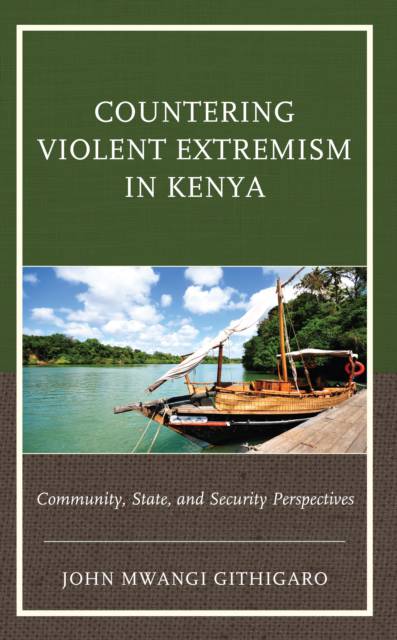
- Afhalen na 1 uur in een winkel met voorraad
- Gratis thuislevering in België vanaf € 30
- Ruim aanbod met 7 miljoen producten
- Afhalen na 1 uur in een winkel met voorraad
- Gratis thuislevering in België vanaf € 30
- Ruim aanbod met 7 miljoen producten
Zoeken
Countering Violent Extremism in Kenya
Community, State, and Security Perspectives
John Mwangi Githigaro
Hardcover | Engels
€ 161,45
+ 322 punten
Omschrijving
Before the rise of the Al-Shabaab, Eastern Africa was home to different organizational nodes of the Al-Qaeda network. Al-Qaeda was responsible for many threats, of which include the August 7, 1998, bombings in Kenya and Tanzania. As terrorism threats have evolved over the years, countermeasures have continued to do the same. Countering Violent Extremism in Kenya: Community, State, and Security Perspectives by John Mwangi Githigaro explores Kenya's historical experiences with terrorism in the pre- and post 9/11 periods as a lens to situate how different stakeholders present the threats of extremism and the associated countermeasures they consider as valuable. The stakeholders presented throughout this book include: security actors, society organizations, academics, and community members. Through extended ethnographic research and fieldwork collected from focus groups within Nairobi and Mombasa between 2016 and 2022, Githigaro offers an opportunity to observe the evolution of counterterrorism interventions in Kenya and the dilemmas this has created around primarily state-society relations, an exploration of how different stakeholders perceive the efficacy of counterterrorism measures, and the appraisal of counterterrorism initiative (CT) interventions that render ongoing CVE interventions less effective.
Specificaties
Betrokkenen
- Auteur(s):
- Uitgeverij:
Inhoud
- Aantal bladzijden:
- 140
- Taal:
- Engels
Eigenschappen
- Productcode (EAN):
- 9781793644749
- Verschijningsdatum:
- 6/12/2023
- Uitvoering:
- Hardcover
- Formaat:
- Genaaid
- Afmetingen:
- 152 mm x 229 mm
- Gewicht:
- 376 g

Alleen bij Standaard Boekhandel
+ 322 punten op je klantenkaart van Standaard Boekhandel
Beoordelingen
We publiceren alleen reviews die voldoen aan de voorwaarden voor reviews. Bekijk onze voorwaarden voor reviews.








